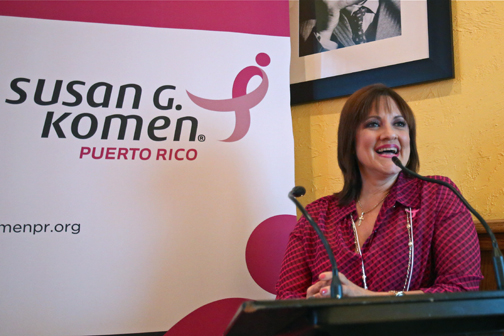PHSU: 60% of Latina breast cancer patients can’t cover basic expenses

Their economic challenges were linked to significant emotional, physical and social losses.
A study by the Ponce Research Institute at Ponce Health Sciences University (PHSU) found that 60.7% of Latina breast cancer patients reported that their annual income, mostly under $19,000, is not enough to cover essential expenses such as housing, utilities, medications and cancer treatments.
“This finding highlights the deep economic inequalities faced by these patients. These economic inequalities are also associated with a greater number of losses associated with cancer treatment; these losses can be emotional, physical and social, and they impact patients’ mental health,” said Cristina I. Peña-Vargas, study researcher and assistant professor at PHSU.
The study also found that 54.9% of participants live with their partners, 35.3% are employed and 64.8% report annual incomes of less than $19,000. Peña noted that these economic limitations significantly affect mental well-being.
The most common losses among participants included:
- Loss of quality of life and independence.
- Financial losses, job opportunities and housing changes.
- Separation from partners or family members and loss of dignity due to feelings of disrespect tied to their diagnosis.
- Physical losses, such as breasts or hair, and symbolic losses, such as the loss of peace.
Participants who experienced these losses reported higher rates of depressive symptoms, especially those using unhealthy emotional coping strategies, such as avoidance or repression. However, family social support emerged as a key protective factor, linked to lower depression levels compared to support from friends or partners.
“These findings underscore the urgent need to promote healthy emotional management strategies and strengthen social support systems, especially among family members, to address the particular needs of Latina patients with breast cancer,” said Peña, the study’s lead author.
“This study highlights PHSU’s commitment to research that seeks to improve the quality of life for the most vulnerable populations,” said Kenira Thompson, president of the Ponce Research Institute and vice president of research at PHSU.
“That is why we will continue to develop research in the field of psychology that responds to identifying specific needs and that provides effective tools to address the diagnosis and treatment of cancer,” Thompson added.
Peña also spoke of plans to integrate emotional management strategies and strong social support systems into interventions designed for this population, reaffirming PHSU’s commitment to research excellence and community well-being.







